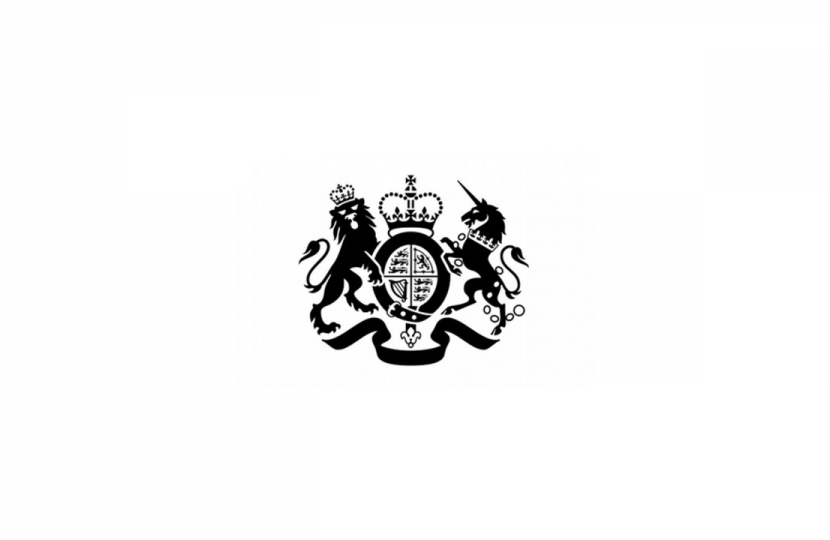
Dear Colleague,
COVID-19: Regulations to extend self-isolation requirement and Local Authority Powers and report on the Coronavirus Act 2020 six-month review
On 14 September, the Government published the COVID-19 Response: Autumn and Winter Plan 2021 and I set out our approach to Parliament in an oral statement. Steadily, over the course of this year, the whole United Kingdom (UK) has seen life return closer to normal. Between March and July this year, the Government’s roadmap for England reopened the economy and lifted restrictions in four steps. Scotland, Wales and Northern Ireland have also emerged from lockdown on similar timetables.
The country is learning to live with COVID-19, and the main line of defence is now vaccination rather than lockdown. Data continues to show that the link between cases, hospitalisations, and deaths has weakened significantly since the start of the pandemic. Latest Public Health England estimates suggest that over 230,800 hospitalisations, 112,300 deaths and over 24,702,000 infections have been prevented as a result of the vaccination programme. The NHS has been preparing for the booster programme. The first jab was administered on 16 September and the programme is now scaling up.
At Step 4 of the roadmap, rules and regulations have mostly been replaced with advice and guidance on the practical steps people can take to help manage the risks to themselves and others. This progress is testament to the hard work and sacrifices of individuals and organisations across the country, particularly our fantastic NHS and world-leading scientists. In line with our Autumn and Winter plan I am today laying an SI to extend in law both the self-isolation requirements and the powers Local Authorities have to place restrictions on individual businesses or events.
Separately, the report on the third six-month review of the Coronavirus Act has also been published today and laid before Parliament. The Health Protection (Coronavirus, Restrictions) (Self-Isolation) (England) (Amendment) (No. 3) Regulations 2021 These regulations will extend The Health Protection (Coronavirus, Restrictions) (Self-Isolation) (England) Regulations 2020 (“the Self-Isolation Regulations”) and The Health Protection (Coronavirus, Restrictions) (England) (No. 3) Regulations 2020 (“the No.3 Regulations”) to the end of 24 March 2022. The Canna Model Technical Report1 estimates that between 1.2 and 2 million secondary cases of COVID-19 have been directly prevented by self-isolation. As cases are likely to rise throughout the autumn and winter months, the test, trace and self-isolate system will therefore continue to play a key role in managing COVID-19. As we set out in our Autumn and Winter Plan, the Self-Isolation Regulations, which are due to expire at the end of 27 September, will therefore be extended to the end of 24 March 2022.
It will remain a legal duty to self-isolate if notified to do so by Test and Trace. A small number of amendments will ensure clarity around how the vaccine exemption for close contacts applies to household contacts and those who have received mixed dose vaccines. Local authorities have always played a critical role in public health protection, emergency response and infectious disease control. COVID-19 has been no different, with local authorities leading the response in their communities. The Government will continue to support and work with local authorities in tackling COVID-19. The No.3 Regulations confer powers on upper-tier local authorities in England to place restrictions on or close individual premises, place restrictions on or prohibit events and, place restrictions on or close public outdoor places, subject to stringent legal tests being met. The powers also enable the Secretary of State for Health and Social Care to require a local authority in England to issue a direction, although these have not been used to date. Consultation with local authorities and directors of public health during August 2021 showed overwhelming support for further extension of the No.3 Regulations, which have been used 330 times to date by local authorities.
The No.3 Regulations, which are due to expire at the end of 27 September, will therefore be extended to the end of 24 March 2022, providing local authorities with COVID-specific powers to respond to serious and imminent threats to public health throughout the autumn and winter months. Coronavirus Act Six-Month Review The Coronavirus Act 2020 (“the Act”) came into force in March 2020, providing crucial support for individuals, businesses and enabling public services to continue to function throughout the pandemic. The Act has always sought to balance the need to be able to respond effectively to the pandemic with a commitment to maintain powers for the shortest possible time and expire provisions which are no longer proportionate.
To date, 13 of the 40 temporary, non-devolved provisions in the Act have been expired. As set out in the Autumn and Winter Plan, and the report published today, a further 7 are recommended for expiry. The Act has given us the powers to ensure that the NHS has the capacity to deal with the peak of the virus by allowing the temporary registration of nurses and other healthcare professionals. It has also protected critical societal functions and ensured that they were still able to continue, such as providing for courts to use video technology. The Act has meant that we were able to ensure effective support packages such as the Coronavirus Job 1 The Canna model: assessing the impact of NHS Test and Trace (publishing.service.gov.uk) Retention Scheme and Self-Employed Income Support Scheme were in place for people and businesses alike. A six-month review of the temporary, non-devolved powers of the Act has been completed following extensive engagement across Government, with the Devolved Administrations, and with the scientific community. The Government has been clear that provisions will be retained no longer than is proportionate or necessary.
The review concluded that seven provisions should be expired, another provision should be narrowed in scope and a further three parts of one should be suspended. The two-monthly report on the Act, including the outcome of the six-month review, is being laid in Parliament today.
The Government’s intention is to expire the following provisions in the Act for England unless otherwise specified: a. Section 23 (UK wide) enables changes to the timings of urgent warrants under the Investigatory Powers Act 2016. b. Section 37 (Schedule 16) gives Ministers the power to direct the temporary closure of educational institutions and providers. c. Section 51 (Schedule 21) allows restrictions to be imposed upon potentially infectious persons including detention, and screening for COVID-19. d. Section 52 (Schedule 22) enables Ministers to restrict or prohibit gatherings or events and to close and restrict access to premises during a public health response period. As noted above, local authorities will retain similar powers to tackle risks in their areas under the No.3 Regulations. e. Section 56 (Schedule 26) (England and Wales) provides that appeals imposed under powers set out in Schedule 21 of the Coronavirus Act can be heard by telephone or video in civil proceedings in the Magistrates Court. f. Section 77 (UK wide) increased the rate of the basic element of Working Tax Credit and applied to the 2020/21 tax year only. g. Section 78 is a power for local authorities to enable remote meetings to be held up to and including 7 May 2021.
The Government also intends to expire some elements of Schedule 17 (section 38) of the Act for England. Schedule 17 allows the Secretary of State to disapply or modify existing requirements in education and childcare legislation if considered necessary. We will reduce the number of requirements that can be disapplied or modified, including removing the ability to modify the duty on local authorities to secure the special educational needs provision in a child or young person’s Education and Health Care plan. The Government intends to suspend the entirety of section 58 (Schedule 28) relating to powers in England for the transportation, storage and disposal of dead bodies. In addition, the Government has already provided for the suspension of the power in relation to notice periods for residential tenancies, in line with the policy intent for notice periods to return to pre-Covid lengths from 1 October. Once the powers mentioned above have been expired, we will have expired 50% of the temporary, non-devolved provisions.
The measures that have been retained remain essential for the ongoing management of the pandemic and will be kept under regular review. This includes provisions that will continue to help support the NHS, such as those which allow the temporary registration of nurses, other healthcare professionals and social workers, and those which continue to support people by enabling Statutory Sick Pay to be payable from day 1 of a claim. As required by the Act, a debate and vote to renew the temporary, non-devolved provisions in the Act, informed by the two-monthly report, will take place in the Commons in October. In the spring, the Government will review this legislation and the other remaining regulations and measures and decide whether any need to remain in place. If you have any questions regarding the issues I have addressed, please contact either [email protected] for the Coronavirus Act or [email protected] for the Regulations.

